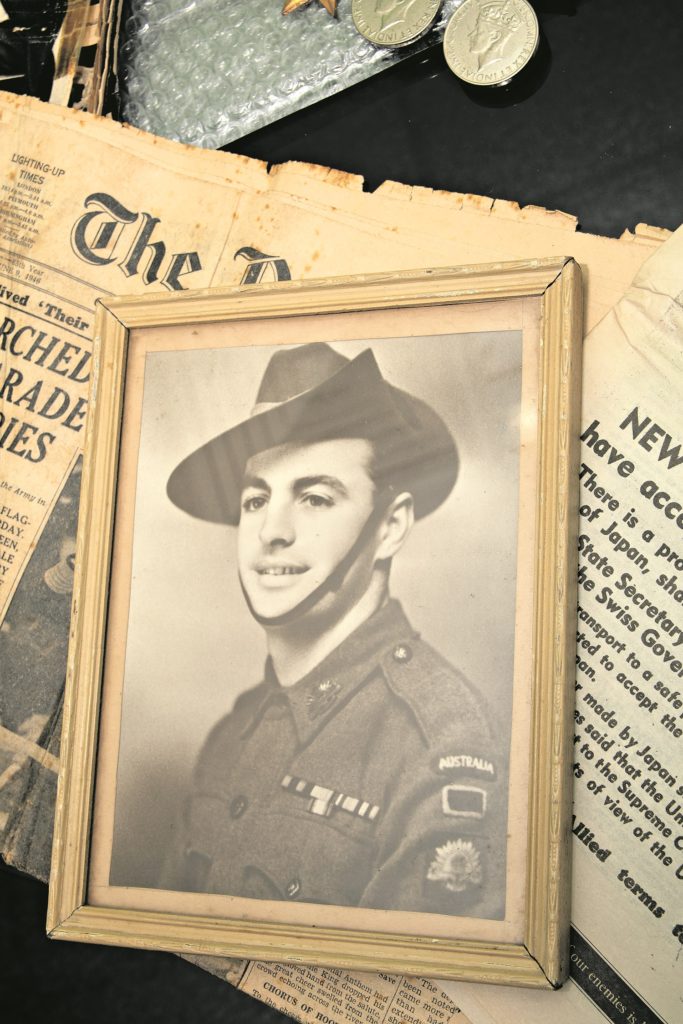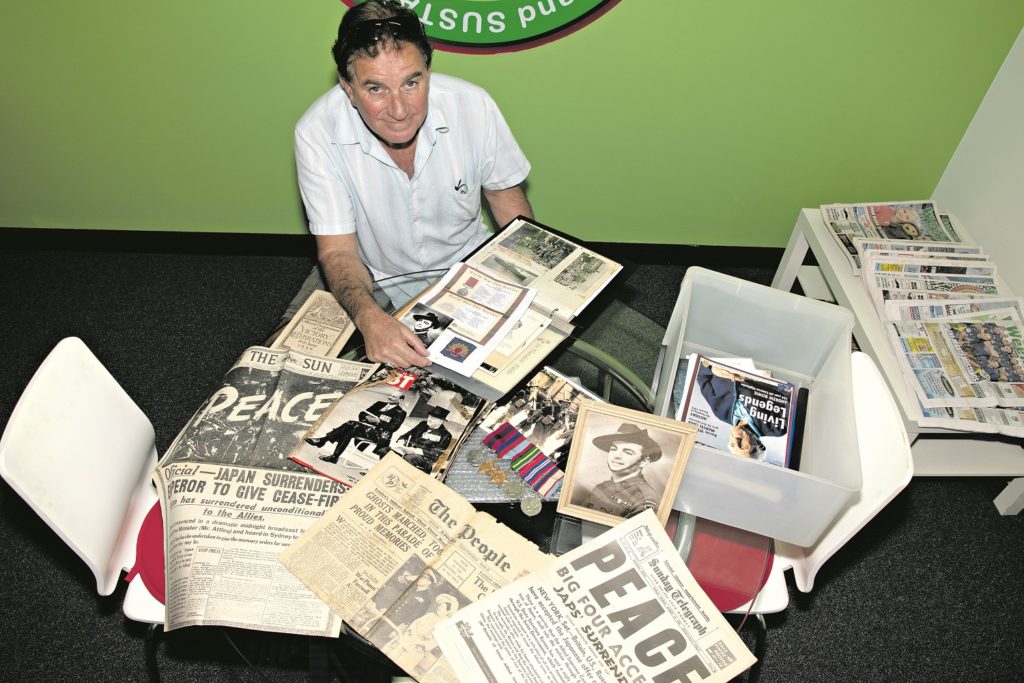
THIS ANZAC Day has already been a great day across the Tweed Shire with thousand reflecting and giving thanks to our brave veterans past and present.
The Weekly has been speaking with locals to uncover some of the remarkable stories of strength and heroism during times of conflict including during World War II.
One such story has surfaced this week from Tweed Shire local Martin Colbert, whose father Kenneth Colbert was recognised with a distinguished conduct medal for his actions during the battle at Hill 910 in New Guinea during June 1 to June 4, 1945.
While Kenneth has since passed, we are fortunate that he wrote down an account of what took place during the New campaign.
Kenneth was born in Marrickville and enlisted to fight in the Pacific campaigns in Kogarah, NSW.
Kenneth’s diary paints a vivid picture of his actions against a formidable Japanese force, who held the high ground on Hill 910 in what is depicted as extremely difficult circumstances.
“On June 1 (1945) an Australia Infantry Force platoon 2/3 battalion led by lieutenant Strone with Kenneth Colbert as acting platoon sergeant, departed to patrol Hill 910 for any Japanese Army presence,” the recounted diary entry by Kenneth read.
Kenneth’s diary recounts a terrible firefight that started on the hill and in which he injured his eye.
But despite his injury, Kenneth took it upon himself, as well as following orders to advance, to run into the line of fire and destroy three Japanese bunkers.
“Colbert was first onto the hill coming under fire at point blank range from the machine gun below the hut,” the dairy entry reads.
“As he ran, fast zig-zagging, he fired continuously from the hip and killed or wounded the three-man Japanese crew, the gun ceased, and his following section made sure it stayed silent.
“Without hesitating he ran up higher firing at a machine gun operating from beneath a shelled-out hut and it ceased also.
“Again, his men consolidated the situation.
“From the base they called that the ravine side platoon was pinned down by fire directly above them, Colbert say firing from a timbered bunker but its side faced him and upon his word the section opened first on it as he dashed some yards downhill to a shell shattered tree trunk from where he fired into a corner of its mouth in vain.”
At this point Kenneth was pinned down and decided to hurl grenades at the final bunker.
While the first two grenades failed to make a dent, he was thrown two more by his platoon and on his third attempt the bunker fell silent.
“The gun ceased immediately, and 11 platoons climbed to the summit.”
Martin said his father never spoke much about the war or those heroic acts during his childhood.
“Dad would love a chat, but he never dwelled too much on his actions or thought of them as heroic,” he said.
“I think it’s amazing to think how traumatising it all must have been for them.
“To envisage what they went through and the deaths of so many people, it’s important that we remember them.”
It’s these acts both small and great of heroism and gallantry that we pause to remember on Anzac Day, in what has become a special time of reflection for our diggers past and present.

YOUR THOUGHTS: The Weekly would love to hear from local soldiers and those family members, who would like to share their story or their families’ stories for future features. Send your thoughts and proposed ideas to editor@theweekly.net.au



